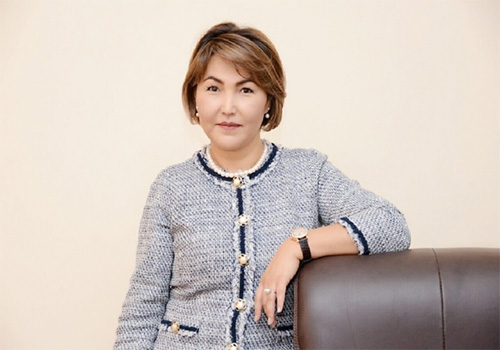
Aktolkyn Kulsariyeva, Doctor of Philosophical Sciences, Professor, Vice-Rector for Research and International Cooperation of KazNPU named after Abai:
- As a female scientist, I would like to talk about the state policy of the First President of the Republic of Kazakhstan - Elbasy Nursultan Nazarbayev, aimed at developing a new quality of human capital in various ways, including by expanding the opportunities for women.
Gender imbalance in the world, including in science, is an established fact. According to the latest available data, while women are moving strongly towards higher education globally (accounting for more than half of university graduates), women make up less than one third of the world's researchers; in addition, due to systematic discrimination, women hold less than 30% of positions in research and development worldwide.
This gap between men and women is due to many reasons - from economic development to discrimination, from prejudice against the female to painfully familiar standard stereotypes that subsequently construct a gender aspect.
Nursultan Nazarbayev, as a pragmatic politician of the nation, has long understood that because of stereotypes one should not lose women's minds that without women and their intellectual capital, the country will not be able to advance in terms of development. As a result, Kazakhstan is paying increased attention to achieving gender equality and empowering women across the entire range of key issues on the UN agenda. Providing women with equal opportunities along with men is one of the important points of the long-term Development Strategy "Kazakhstan-2050". An institutional framework in the field of gender equality created in the Republic of Kazakhstan. The country has two gender-oriented laws of the Republic of Kazakhstan - "On Prevention of Domestic Violence" and "On State Guarantees of Equal Rights and Equal Opportunities for Men and Women". Since 2016, the Concept of Family and Gender Policy in the Republic of Kazakhstan until 2030, approved by the Decree of the President of the Republic of Kazakhstan, has been successfully implemented.
According to the latest data, today more than 10% of political civil servants are women. Representatives of the beautiful half of humanity, who provide 31% of all jobs, head 43% of all small and medium-sized businesses. Based on such an enabling environment for women's empowerment, it's no surprise that Kazakhstan ranks 30th in terms of "women's economic participation and empowerment" in the World Economic Forum's Global Competitiveness Index.
At a recent honoring of women on the eve of March 8 in Akorda, Nursultan Nazarbayev stressed that almost 30% of the Majilis deputies are women, while worldwide this figure is 24%, and that he intends to continue working to increase their number, “because in the total composition of our citizens, 52% are women. Not using this potential is wrong, and moving in this direction is very important.” This once again proves that nothing prevents a girl from becoming a wife, mother and at the same time being a successful scientist or businessperson, an effective manager, if the state provides conditions for combining parenthood and doing what you love. According to Nursultan Nazarbayev, such a balanced gender advancement is the key to sustainable, progressive development of Kazakhstan in the 21st centur